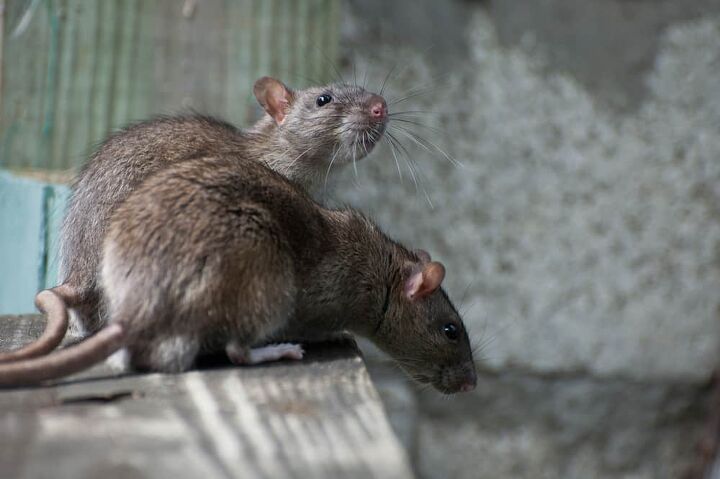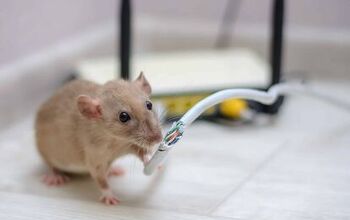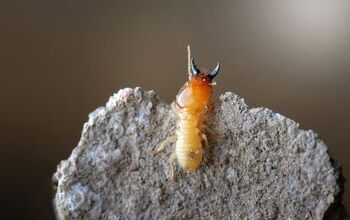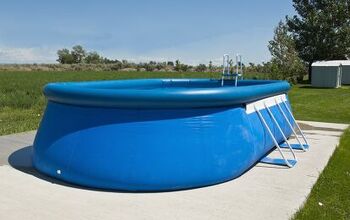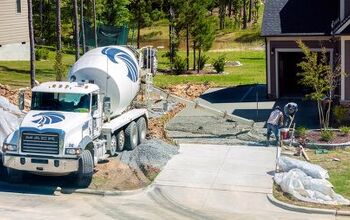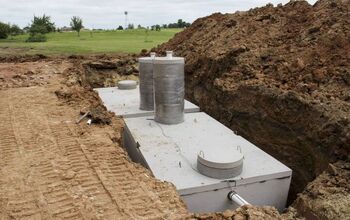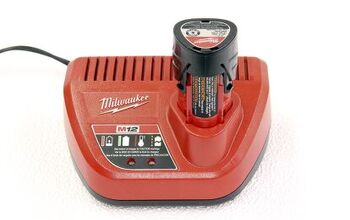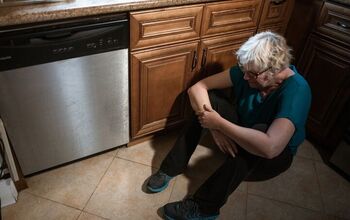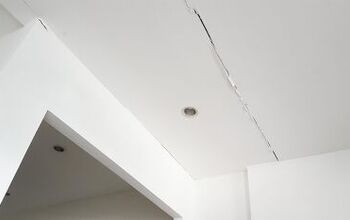Can Rats Chew Through Concrete? (Find Out Now!)

Rodents are famous for two things: being amazing pets and for chewing everything in sight. Well, okay. Maybe most people don’t see rats as good pets, but love them or hate them, rats are notorious for chewing through everything. If you’re a rat owner, you already know how bad it can be, but can rats chew through concrete?
Rats can chew through concrete and almost anything else when they are motivated enough to do so. Rats have a higher force per square foot when it comes to their bite than any other rodent. Drywall, brick, concrete, and aluminum are all fair game to these little critters. Curing concrete will prevent rats from eating it.
If you recently found a surprise rat in your home, it’s totally normal to freak out a bit. After all, even concrete can become a rat’s next meal if it’s motivated enough. If you have rats as pests…well, you probably want to know what can and cannot stop their teeth.
Do You Need Pest Control Services?
Get free, zero-commitment quotes from pro contractors near you.

How Can Rats Chew Through Hard Materials?
It might seem impossible for a small creature to chew through such hard materials, although some rats can be rather large. But, rats have some amazingly strong jaws. Their bite pressure is exceedingly strong compared to their size.
Exact measurements are unknown, but it is estimated that a rat’s bite is more forceful per square inch than an alligator’s. Also, rats’ teeth are constantly growing, roughly 1.4mm per day. Therefore, rats have a constant need to gnaw and chew to grind their teeth down to prevent any issues.
With these powerful attributes, rats can chew through drywall, wood, aluminum, and yes, concrete.
Is It Common For Rats To Chew Through Concrete?
Honestly, it’s pretty rare for rats to get desperate enough for food that they’ll eat through concrete. However, they can and occasionally do. There are several reasons why rats might decide to chew through concrete:
- The rat in question is starving for food. This often happens in situations where rats are in a low-greenery area and they smell food coming from a home. It also can happen in city environments.
- There are few to no other homes around you. While this is not as common, many rats will try to stick to areas where humans are simply because food is so scarce outside of areas where people live.
- The rat was escaping predators. This is the most common reason why. If a rat has a reason to believe that they will be able to avoid cats by gnawing through your concrete, they will chew it till the cows come home.
- Rats decided they need a new shelter. Hey, they don’t always need a big reason. Even a particularly bad winter can make rats choose to create a new home. Sometimes they find concrete to be warmer than, say, a wooden shed. Other times, it’s because rats feel the warmth from a home and decide to shelter there during an ice storm.
Does It Need To Be A Certain Type Of Concrete?
Not always. In fact, there is a pretty foolproof way to make sure that most rats don’t chew through the concrete that makes your home’s foundation: curing the concrete. Truthfully, most major parts of a house will be made with concrete that has gone through a proper curing session. This keeps rats from being able to chow down on it.
There have been some cases where rats chewed through cured concrete. However, there’s a catch here. The concrete was only able to be attacked successfully because the cure didn’t take well. This can lead to parts of the concrete not having the protective layer it needs to be rodent-proofed.
Can Rats Harm Concrete In Other Ways?
Rats do not need to chew through concrete to harm it. Many rodents, including rats, cause serious house structural damage by burrowing underneath the concrete slabs that support your home. In some cases, the gaps underneath the concrete can cause weaknesses by forcing other parts of the concrete to support the “open-air” space.
Over time, these gaps can also start to house water and mold. Both can weaken the structure of concrete or cause some wear and tear. As a result, it’s not unusual for concrete to start to crumble as a result of ratty activities.
What Can You Do To Prevent Rats From Chewing On Your Home’s Concrete?
Curing aside, there are several ways to ensure that rats don’t decide to make your home’s concrete their new homes. These tips below can help you ensure that you don’t end up having rats near you:
- Plant rat-repelling flowers around the perimeter of your house and yard. Rats have sensitive noses. Plants like lavender, green onions, garlic, daffodils, and peppermint all carry too strong a scent for them to handle. As a result, they won’t want to dig near these plants.
- If you have a rat problem indoors or see them outdoors, act immediately. Do not make the mistake of trying to wait things out. Once rats start being visible in your home, you already have a serious issue. Calling a pest control company is a must, as is taking measures to help make your home less hospitable for rodents.
- If you have rabbits, consider keeping them in a hutch outside. Hopefully, it won’t come to this. However, there is evidence that shows that rabbits tend to attract mice and rats to a home.
- Get cats, or a terrier. Having pets that act as predators to rats is a good way to dissuade rats from ever coming anywhere near your home. This may backfire if you already have rats living under the house short-term but can still prevent it long-term.
What Should You Do If You Believe Rats Ate Through Your Home’s Concrete?
I’m not going to try to mince words. This is a bad situation that could potentially mean serious structural damage to your home. Here’s what you should do:
- First, call your homeowner’s insurance. It’s always a good idea to see if a claim is doable. If you can prove rats are an “act of God” or otherwise not your fault, you might get a claim.
- Then, call a pest control expert who has experience with rats. If they are present, the pest control experts will be the very first to tell you. They will also be able to tell you whether rats did, in fact, gnaw on your concrete and remove the rats from your home’s vicinity.
- Repair any damage to your concrete and home structure caused by the rats. This often requires the aid of a specialty contracting crew. When the damage has been remediated, it’s important to remember to cure that concrete. After all, you don’t want to have to deal with Rats Chewing 2: Electric Boogaloo.
Do You Need Pest Control Services?
Get free, zero-commitment quotes from pro contractors near you.

Related Questions
What scent do rats hate the most?
The scent of naphthalene is one of the most repulsive smells for rats, and that’s backed by science. This is a chemical compound present in the musk of most animals that prey on rats. Cat urine, ferret glands, and raccoons all tend to give off this scent. If you don’t have a pet cat around or don’t like a musky scent, don’t panic. There are other options you can use.Lemongrass, lavender, and any sort of onion-based plant scent tends to work well too. Since these herbal scents tend to be extremely powerful, rats’ sensitive snouts can’t handle them.
Can sewer rats really come up through your toilets?
Believe it or not, this is not an urban legend. Depending on the plumbing system in your area, it’s possible for a sewer rat to swim up through your toilet and climb out. Most people don’t realize this, but rats are remarkably good swimmers. If they are able to hold their breaths enough, it’s possible for them to swim up through the plumbing into a toilet. Thankfully, this is an extremely rare occurrence.
What should I do if I find a rat in my toilet?
Close the lid, put something heavy on it, and call your city. There may be a major rat problem in your city that they need to be aware of. To make sure it doesn’t happen again, call a plumbing company or your landlord. They will be able to source the entry point and hopefully put a grate there so that rats can’t climb up your toilet ever again.

Ossiana Tepfenhart is an expert writer, focusing on interior design and general home tips. Writing is her life, and it's what she does best. Her interests include art and real estate investments.
More by Ossiana Tepfenhart



